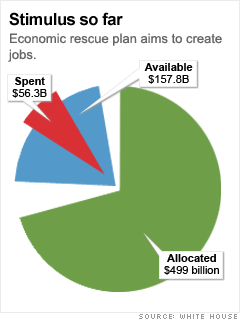Ask the Economists: Another stimulus?
With the stimulus underway and unemployment rising, we ask leading economic thinkers if it's time for a second round of help.

Given the economy is flattening out, I do not think now is the time to do a second stimulus. Also, the first stimulus really hasn't had much chance to work yet. It's still rolling out. If the economy performs worse than expected -- in other words, if we get rapidly declining GDP in the third quarter and the fourth quarter of this year -- then that would be the time to formulate a second stimulus, which I would do through tax rebates.
The reason I'm reluctant to do a second stimulus now is the budget deficit projections are really horrendous and at some point we may find it difficult to finance those deficits. If global investors become concerned about the willingness of the federal government to control budget deficits, there will be upward pressure on interest rates and downward pressure on the dollar.
In addition, more money may still be needed for the financial sector because I'm not convinced we're out of the woods yet resolving the banking problem. The recession is causing additional defaults and a particular concern now is foreclosures on commercial loans and commercial mortgages. We should save whatever money is left in the TARP for the financial sector as a precaution.
NEXT: Joseph Stiglitz: Yes, the net stimulus is too small
